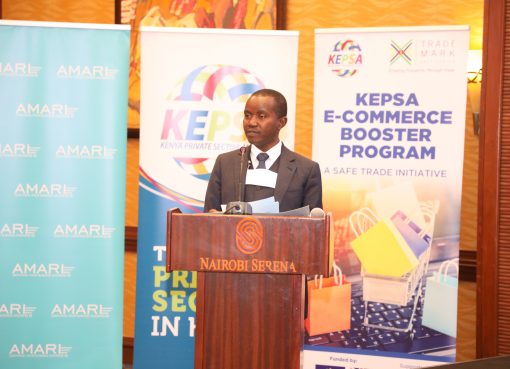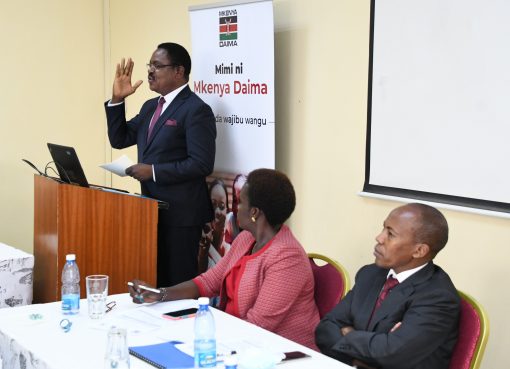The Water Supply and Treatment Systems in developing countries such as Kenya continue to face infrastructural and resource deficits, threatening urban water security and the general health and well-being of residents in urban areas.
According to Davis & Shirtliff Chief Executive Officer (CEO), David Gatende, implementation and enforcement of Urban Water Management (UWM) policies is therefore paramount if water security is to improve as well as restoring the health of waterways and wetlands in our urban areas.
Gatende said that urban water comprises all water that exists in the urban environment and this includes natural surface water and groundwater and strict implementation of UWM policies and strategies will result in urban centres that are resilient, livable, productive and sustainable.
“UWM plans are key enabling factors in ensuring that cities remain the generators of wealth and employment, incubators of innovation and creativity and provide the best opportunities to improve livelihoods while sustainably maintaining an ecological balance,” he added.
This comes against the backdrop of increased urbanization in different parts of the country that has led to increased pressure on limited resources, a situation that is exacerbated by infrastructure that cannot support the demand.
Gatende attributed the current challenges being faced in the urban water management sector to this phenomenon, adding that it is estimated that by 2027 the urban population will reach 31.7 million (56 percent) in Kenya and currently, only one-third of urban residents have access to basic water and sanitation services.
He explained that though increased urbanization comes with many challenges, it also presents a wealth of opportunities in industrialization, wealth generation, wastewater treatment and recycling.
“In Nairobi for example, some of the greatest challenges experienced both by residents within the city and industrial enterprises, is the unavailability and inaccessibility to clean water, intermittent flooding during the rainy seasons, seasonal cholera breakouts and poor sanitation services. A strategy for urban water management therefore takes into account the projected population growth for the next century and will not only be beneficial but critical towards the growth and economic development of Nairobi,” Gatende added.
On Implementing UWM policies, the Davis & Shirtliff CEO said, will also result in increased availability of high-quality non-potable water which should be used to supplement natural water resources in agricultural, industrial and domestic applications.
“Improved water security due to the availability of additional water resources, reduced cases of water-borne illnesses among urban dwellers propagated by poor sanitation and mitigating against floods in urban areas due to proper land planning and improved drainage facilities are the other benefits the country would reap with implementation of UWM policies,” he explained.
Commenting on the roles of both the government and the private sector in ensuring a robust and well-functioning urban water management system, the Davis & Shirtliff CEO said: “The role of government can never replace the role of the private sector but it provides relevant measures to complement efforts by the formal and informal sectors by setting policies on land, infrastructure, water resources, and environmental health. It provides a favorable and conducive environment for stakeholders in the private sectors to operate and thrive and sets the legal framework within which industry can operate.”
Gatende, however, cautioned that UWM will only be successful in the country if Kenya greatly develops its urban water infrastructure and trains staff working in water supply systems, on top of implementing the policies, to sustainably support the strategy.
The CEO said Kenya could borrow a leaf in urban water management from Singapore with Gatende pointing out that:
“Singapore is an excellent example of a nation that has successfully implemented urban water management strategy, having improved its water management system from below average to world-class within two decades. Its remarkable improvements have significantly changed the lives of its residents by reducing flood-prone areas from 6,900ha to 34ha, therefore reducing the damage and loss that is brought about by floods, recycling and reclaiming high-quality water from wastewater sources through a robust wastewater collection and treatment system which has become one of its four sources of water.”
By Joseph Ng’ang’a




